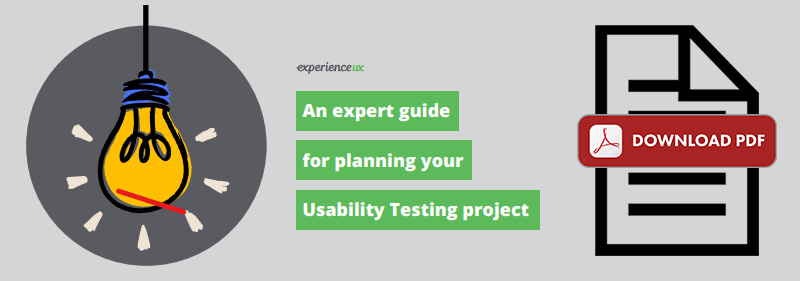It is quite likely that you take what you do for granted. Your experience, your skills, your process, and your personality are likely to offer far more value to the world around you than you realise. And as the world becomes more interconnected and louder, you might even feel that your knowledge and abilities are less unique than you’d hope.
This has come to light for me with regards to what we do, following a round of recruitment we have just undertaken, highlighting the risk of the essence of usability testing being lost in the language.
Our core work continues to be usability testing and user research, making up 70% of our work. While the specifics of our projects vary, the essence of our work has remained consistent since we began in 2007 – qualitative, moderated, and observational research.
We often take for granted that everyone sees usability testing the way we do. I’m aware of the unmoderated variety of course, but it occurred to me that many people have their own perspective and experience when it comes to usability testing.
In a recent job posting, we emphasized the need for proven experience. We needed someone, with experience in what we do, who would be quick to settle in and be able to lead projects.
To our surprise, many applicants equated usability testing and user research with running the occasional A/B test or using tools like Hot Jar. They weren’t entirely wrong (and we utilise these tools too); it’s just a different angle on what constitutes user research and plays a different role. It’s a stark reminder that two people can use the same words but mean entirely different things.
In other examples, I heard about usability testing that was structured to interview customers/users who had previously used the website. There is no observation, no context, just asking people what they think they can remember of their journey and what they think they’d like to see to improve it.
We even talk about the various types of usability testing, but my concern is that all the value I see in what I believed to be standard practice, is being lost. Here’s what we mean by Qualitative, Moderated, and Observational in an Experience UX project:
Qualitative:
- Involves fewer participants, carefully recruited based on demographics, attitudes, and life situations.
- Ensures richer, deeper conversations with the right people in the right context.
Moderated:
- One-on-one research, similar to a depth interview.
- Allows researchers to adjust tasks, open conversations, and probe throughout each interview.
- Provides the flexibility to explore naturally and reactively, offering a real-world perspective on user behaviour.
Observational:
- Focuses more on what people do rather than what they say.
- Introduces realistic scenarios and tasks to observe users’ engagement with a website.
- Captures hesitation, frustration, and confusion in a realistic context for exact findings and recommendations.
While many others follow a similar path, there’s a growing percentage that doesn’t but do speak the same language. It’s a reminder that we must continue sharing not just what we do but how we do it and the value of our approach.
For those entering the realm of usability testing or seeking to understand it better, the key takeaway is to recognise the depth and nuance involved – its essence. When engaging in or hiring for user research, prioritise experiences that delve into the qualitative, moderated, and observational aspects.
Don’t take for granted that everyone else understands your skills and processes. As a community, let’s continue sharing not only what we do but also how we do it and let’s aim for a shared language that truly reflects the depth and impact of our work.


